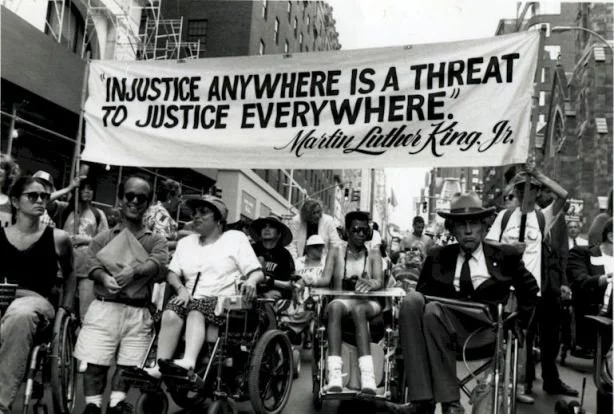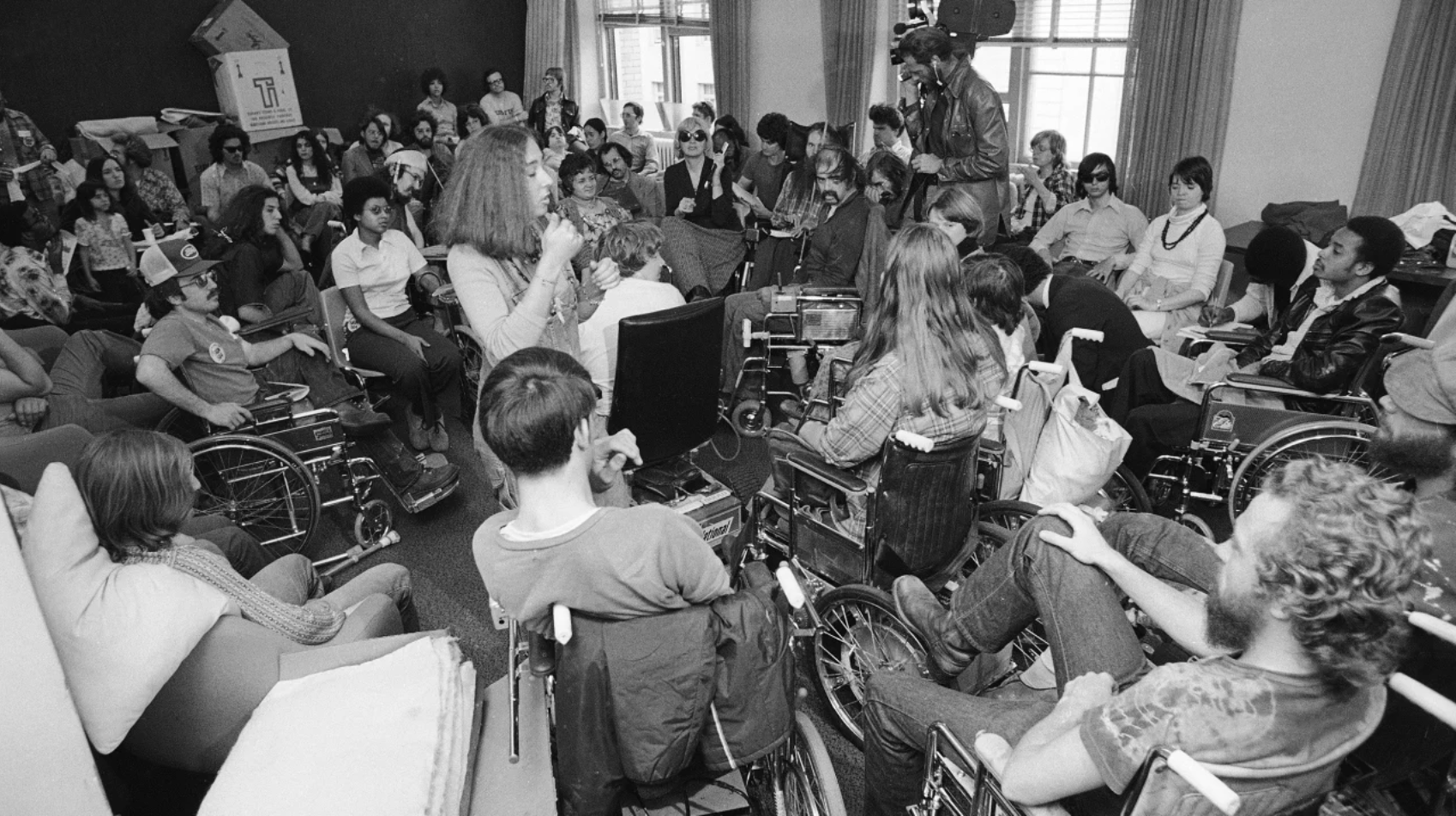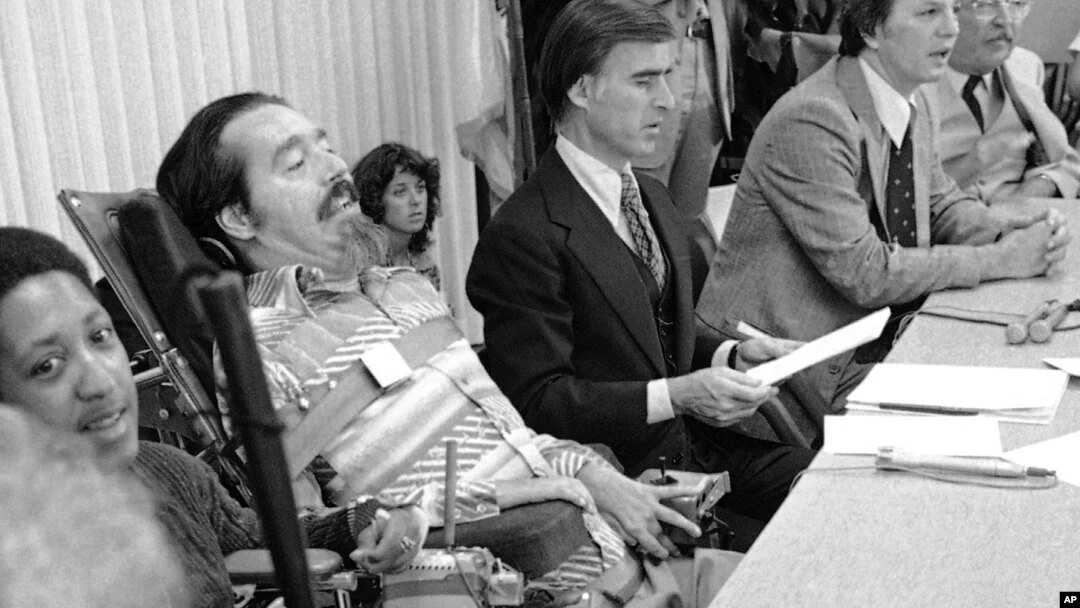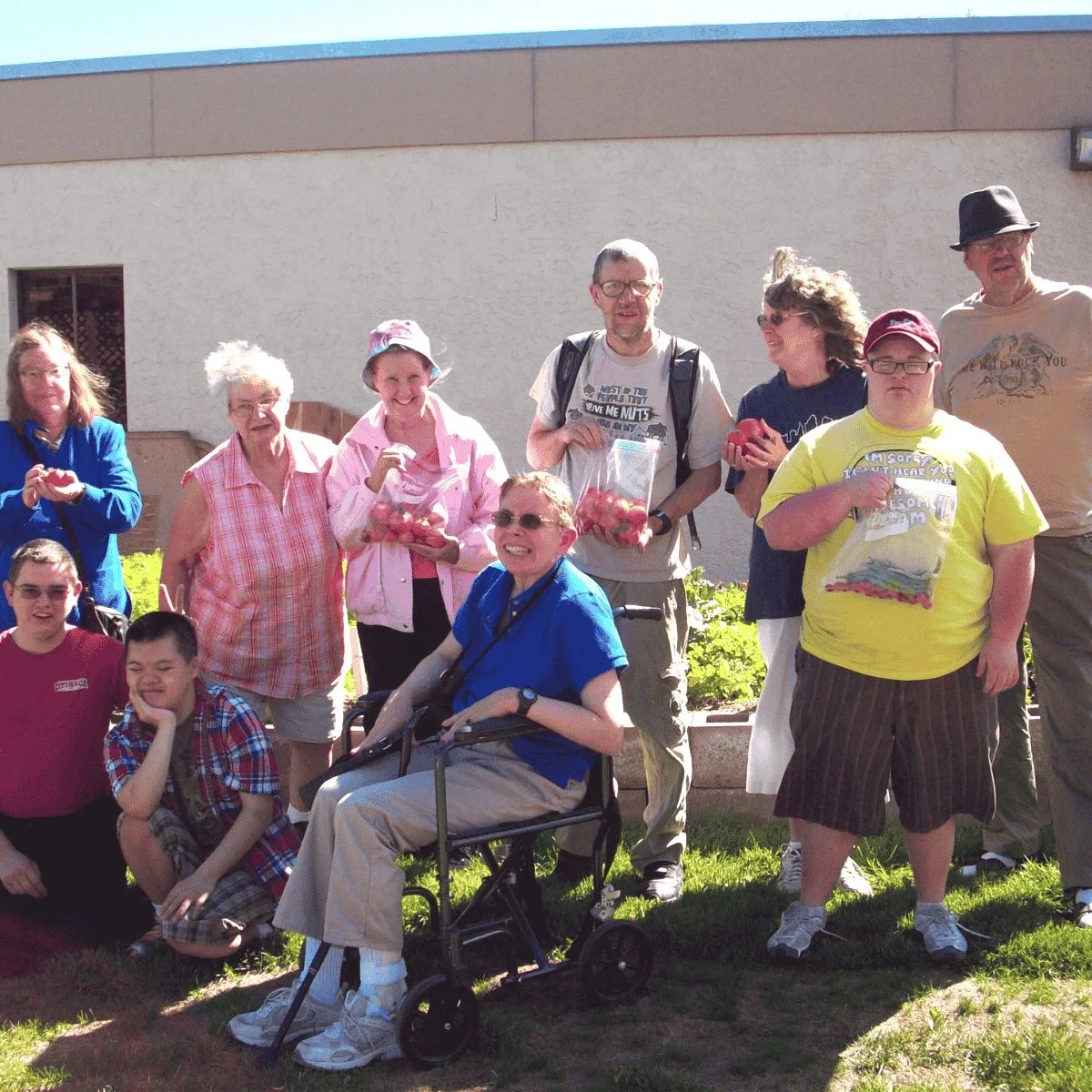
History
The Center for People With Disabilities (CPWD) is a cross-disability, nonresidential, nonprofit agency that provides unique services to people with disabilities. Founded in 1977 by Judy Dixon and former Boulder County Commissioner Homer Page, CPWD’s first focus was to help people with disabilities gain employment. Today, CPWD offers a comprehensive set of programs and services to meet the current needs of people with disabilities and assist them in achieving and maintaining independent living.
What is a Center for Independent Living and the Independent Living Philosophy?
The movement to end discrimination against people with disabilities, establish rights and services for people with disabilities, and stand up for equality, equity, and accessibility, started in the 1960s, in tandem with the Civil Rights Movement.
Prior to that time, people with disabilities faced many barriers, including access to physical locations, healthcare, education, training, and other needs. Jobs were unavailable, and access to transportation, public and private buildings, and basic services were extremely limited. People with disabilities were marginalized, discriminated against, institutionalized, and abused.
The Independent Living Movement called for an end to this, and demanded laws and policies that would dismantle barriers to independent living and advocate for an inclusive society. The Independent Living Movement brought people with different disabilities together, including those with physical, intellectual and developmental, visual and hearing, and other disabilities.
For the first time, people with all disabilities joined in a common effort to end discrimination and advocate for rights and equality. The collective voice of people with disabilities called for individual rights and decisions to be made by people with disabilities themselves through de-medicalization and de-institutionalization, and resources and assistance for independent living.
The seeds of the Independent Living Movement independent living took root in California, where Ed Roberts, often thought of as the father of the Independent Living Movement, fought for his right to attend college, and eventually opened the first Center for Independent Living (CIL).
In 1968, the Architectural Barriers Act was passed, mandating that federally constructed buildings and facilities be accessible to people with physical disabilities. In 1973 the Rehabilitation Act became law, prohibiting discrimination against people with disabilities in all programs or services receiving federal funds. Over the ensuing years, protests over access and rights have continued to draw attention to the discrimination of people with disabilities in the workforce and society.
It wasn’t until 1990 that the Americans with Disabilities Act became law. This comprehensive civil rights protection Act mandated that local, state, and federal governments and programs be accessible, that employers with more than 15 employees make “reasonable accommodations” for workers with disabilities and not discriminate against otherwise qualified workers with disabilities, and that public accommodations such as restaurants and stores not discriminate against people with disabilities by making “reasonable modifications” to ensure access for members of the public with disabilities. The Act also mandated access to public transportation, communication, and in other areas of public life.
Over the years, private and non-profit organizations have grown to meet the support, training, in-home and independent living needs of people with disabilities.
Currently, Centers for Independent Living exist in all 50 states, Canada, and most of the developed countries of the world.
Colorado has 9 CILs. Without support and independence, many people with disabilities experience isolation, depression and other physical and mental disabilities.






